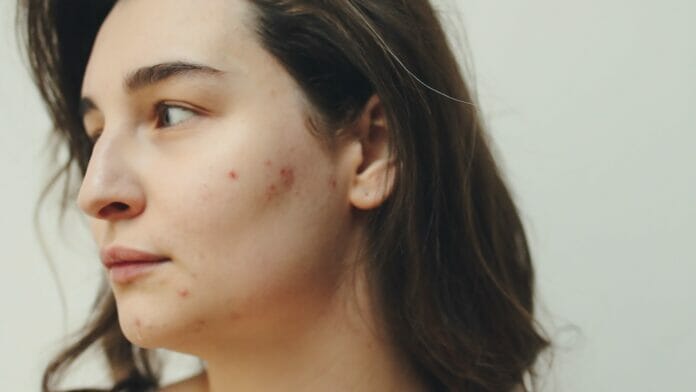Dark spots are a common skin concern caused by various factors, including sun exposure, hormonal changes, and aging. Luckily, several effective home remedies can help reduce the appearance of dark spots on your skin.
Here are some of the best home remedies for dark spots:
- Lemon Juice: The citric acid in lemon juice has natural skin lightening properties. Apply fresh lemon juice to the affected area and leave it on for 10-15 minutes before rinsing.
- Aloe Vera: The gel from aloe vera plants contains compounds that can help reduce hyperpigmentation. Apply fresh aloe vera gel to the affected area and leave it on overnight before rinsing.
- Potato: Potato contains a catecholase enzyme, which can help reduce dark spots. Slice a potato and place a slice over the affected area for 10-15 minutes.
- Apple Cider Vinegar: ACV contains acetic acid, which has natural bleaching properties. Mix equal parts ACV and water and apply to the affected area with a cotton ball. Leave on for a few minutes before rinsing.
Pro tip: It’s important to wear sunscreen to prevent further skin darkening and protect against sun damage. Additionally, be patient with these remedies as they may take some time to show results.
Understanding What Causes Dark Spots
Several factors, including sun exposure, hyperpigmentation, aging, hormones, and genetics can cause dark spots. While they can affect any part of the body, they are usually more noticeable on areas of the face, such as the cheeks, forehead, and chin.
Knowing what causes dark spots is essential to treating them effectively and can help you choose the right home remedies.
Identifying the different types of dark spots
Various factors, including sun exposure, aging, hormonal changes, and genetics cause dark spots on the skin. Familiarizing yourself with the different types of dark spots can help you determine the best course of action to reduce their appearance.
Here are the three most common types of dark spots:
1. Age spots: Also known as liver spots, age spots are small, flat, and brown areas of skin associated with aging and sun exposure.
2. Melasma: This condition causes grayish-brown patches on the face, forehead, cheeks, and nose. It is often linked to hormonal fluctuations, such as those during pregnancy or from birth control pills.
3. Post-inflammatory hyperpigmentation (PIH): PIH occurs when the skin produces excess melanin to heal after an injury, such as a pimple or cut, resulting in dark spots.
Some home remedies for dark spots include applying aloe vera gel, lemon juice, or turmeric to the affected area. However, it is always best to consult a dermatologist for professional advice on treatment options.
Discussing the causes of each type of dark spot
Dark spots on the skin can take different forms, including age spots, sunspots, and post-inflammatory hyperpigmentation. Understanding the causes of each type of dark spot is crucial for finding the right treatment.
Age spots: Typically occur in adults over 50 and are caused by prolonged sun exposure and UV damage.
Sunspots: Also known as solar lentigines, these skin spots are caused by direct exposure and appear on areas frequently exposed to the sun.
Post-Inflammatory Hyperpigmentation: This type of dark spot occurs after an injury or inflammation, such as acne or eczema, and is caused by an excess of melanin production in the affected area.
You can try remedies such as lemon juice, aloe vera gel, and apple cider vinegar to treat dark spots at home. However, it’s important to note that these remedies may not work for everyone and it’s recommended to seek the advice of a dermatologist for a more effective treatment plan.
Understanding how to prevent dark spots from forming
Dark spots on the face can be unsightly and difficult to eliminate, but understanding what causes them and implementing simple home remedies can help prevent them from forming.
Melanin is the pigment responsible for giving color to our skin. When the skin produces too much melanin, dark spots can appear. Factors contributing to an overproduction of melanin include hormonal changes, sun exposure, and aging.
Here are some home remedies that can help prevent dark spots:
- Lemon juice: Rich in vitamin C, lemon juice can help reduce the appearance of dark spots. Apply it directly to the affected area using a cotton ball.
- Aloe vera: This natural plant contains aloin, which can help reduce the appearance of dark spots. Apply the gel to the affected area daily.
- Turmeric: This spice has natural skin-lightening properties. Mix turmeric powder with milk or yogurt to create a paste and apply it to the affected area.
Pro tip: Always wear sunscreen outside, even on cloudy days, to reduce sun damage and prevent dark spots.
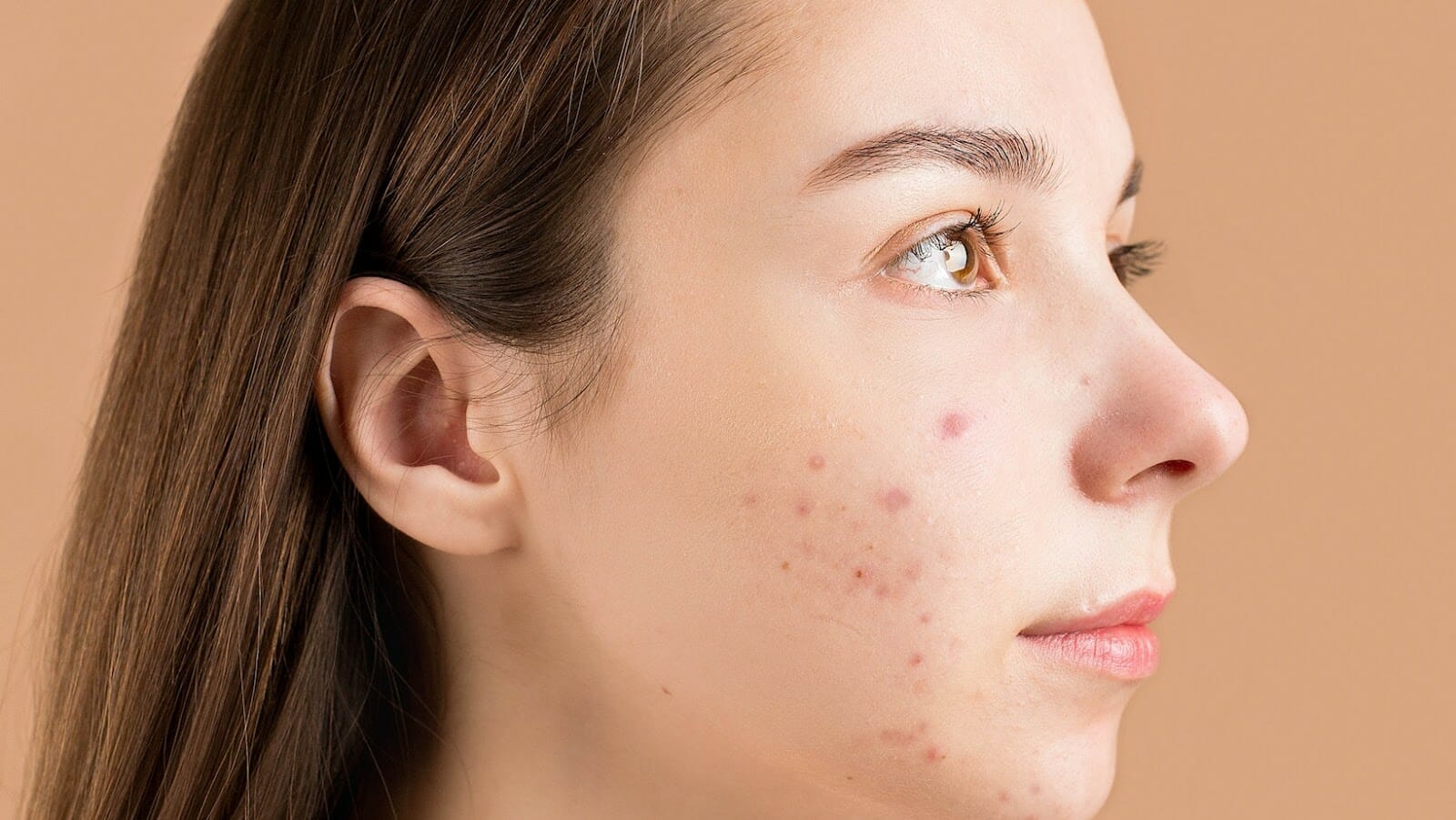
Wellhealthorganic.com/easily-remove-dark-spots-lemon-juice
Dark spots are an aesthetic issue caused by sun exposure, mosquito bites, and hormonal imbalances. As a result, many people look for ways to naturally remove dark spots from their skin. Fortunately, there are a variety of natural home remedies and ingredients that can help reduce or completely get rid of dark spots.
In this article we will discuss some of these natural remedies and how they can be used to treat dark spots.
Lemon juice and its effectiveness on dark spots
Lemon juice is an effective natural remedy for removing dark spots due to its high concentration of citric acid, which acts as a natural exfoliant and skin lightener.
Here’s how to use it:
- Squeeze fresh lemon juice into a small bowl.
- Dip a cotton ball or Q-tip into the juice and apply it directly to the dark spots.
- Let it sit for 10-15 minutes, then rinse your skin with water.
- Repeat the process once a day for several weeks to see a noticeable improvement in the appearance of the dark spots.
Pro tip: Always perform a patch test on a small skin area before using lemon juice on your face to ensure you do not have an allergic reaction. Applying sunscreen after using lemon juice is also essential, as it may increase the skin’s sensitivity to sunlight.
Preparing and applying lemon juice
Lemon juice is an effective and natural remedy for reducing the appearance of dark spots on the skin. Follow these steps to prepare and apply lemon juice for the best results:
1. Start by squeezing fresh lemon juice into a small bowl.
2. Dip a clean cotton ball or pad into the juice and gently apply it to the affected area.
3. Leave the juice on the skin for 10-15 minutes.
4. Rinse the area with warm water and pat dry with a clean towel.
5. Apply a moisturizer to prevent drying of the skin.
Lemon juice contains citric acid, which helps to exfoliate the skin and reduce the appearance of dark spots over time. However, it is important to remember that lemon juice can also make your skin more sensitive to UV rays. So, applying sunblock or staying indoors during peak sun hours is recommended.
Safety precautions when using lemon juice
Lemon juice is an effective natural remedy for removing dark spots, but taking safety precautions before using it on your skin is important.
Here are some safety precautions to follow when using lemon juice:
- First, dilute the lemon juice with water before applying it to your skin. This will reduce the juice’s acidity, which can cause skin irritation.
- Test the lemon juice on a small skin patch before applying it to a larger area. This will help you determine if you are allergic to lemon juice or if it causes any skin irritation.
- Avoid direct sunlight after applying lemon juice to your skin. The juice can make your skin more sensitive to sunlight, leading to sunburns and hyperpigmentation.
- Rinse off the lemon juice thoroughly after use. Leaving the juice on your skin for too long can cause dryness and irritation.
By following these safety precautions, you can safely and effectively use lemon juice as a natural remedy to remove dark spots from your skin.
Aloe vera and its effectiveness on dark spots
Aloe vera is a popular natural remedy for reducing the appearance of dark spots on the skin. In addition, Aloin is a natural depigmenting compound that can help fade dark spots and improve overall skin tone. Here’s how to use aloe vera for dark spots:
- First, cut a fresh aloe vera leaf and scoop the gel using a spoon.
- Apply the gel directly onto the dark spots.
- Leave the gel on for 30 minutes or overnight, depending on the severity of the dark spots.
- Rinse with cool water and pat your skin dry.
For best results, use this treatment twice daily, morning and night. However, please consult a dermatologist before trying any home remedy.
Pro tip: Aloe vera can also be used with other natural ingredients like lemon juice or honey to enhance its effectiveness in reducing dark spots.
Preparing and applying aloe vera
Aloe vera is a natural remedy that can help to reduce the appearance of dark spots on the skin when prepared and applied correctly at home.
Here is how you can prepare and apply aloe vera to treat dark spots:
- First, cut a fresh aloe vera leaf and extract the gel-like substance inside.
- Apply the gel directly to the dark spots on your skin using your fingertips.
- Allow the aloe vera gel to absorb into your skin for about 30 minutes.
- Rinse the affected area with lukewarm water and pat it dry with a soft towel.
- Repeat the process daily for several weeks to see a noticeable reduction in the appearance of dark spots.
Aloe vera is a natural, gentle, and effective way to treat dark spots on the face or body. Use a fresh aloe vera leaf, as pre-packaged or processed aloe vera products may be less effective. Pro Tip: For extra benefits, mix aloe vera gel with other natural ingredients like lemon juice or honey to make a DIY mask or scrub.
Safety precautions when using aloe vera
Aloe vera is a natural and effective remedy for removing dark spots, but users should take certain safety precautions to avoid adverse reactions.
Here are some safety precautions to follow when using aloe vera:
- Conduct a patch test before applying aloe vera to your skin
- Use aloe vera sparingly and avoid getting it near your eyes or mouth
- If you have sensitive skin, dilute the aloe vera gel with water or mix it with a carrier oil like coconut oil
- Always use fresh aloe vera gel or make sure to check the expiration date of store-bought products
- Store aloe vera gel in a cool, dry place away from direct sunlight
- If you experience adverse reactions like redness, itching, or swelling, stop using aloe vera immediately and consult a dermatologist.
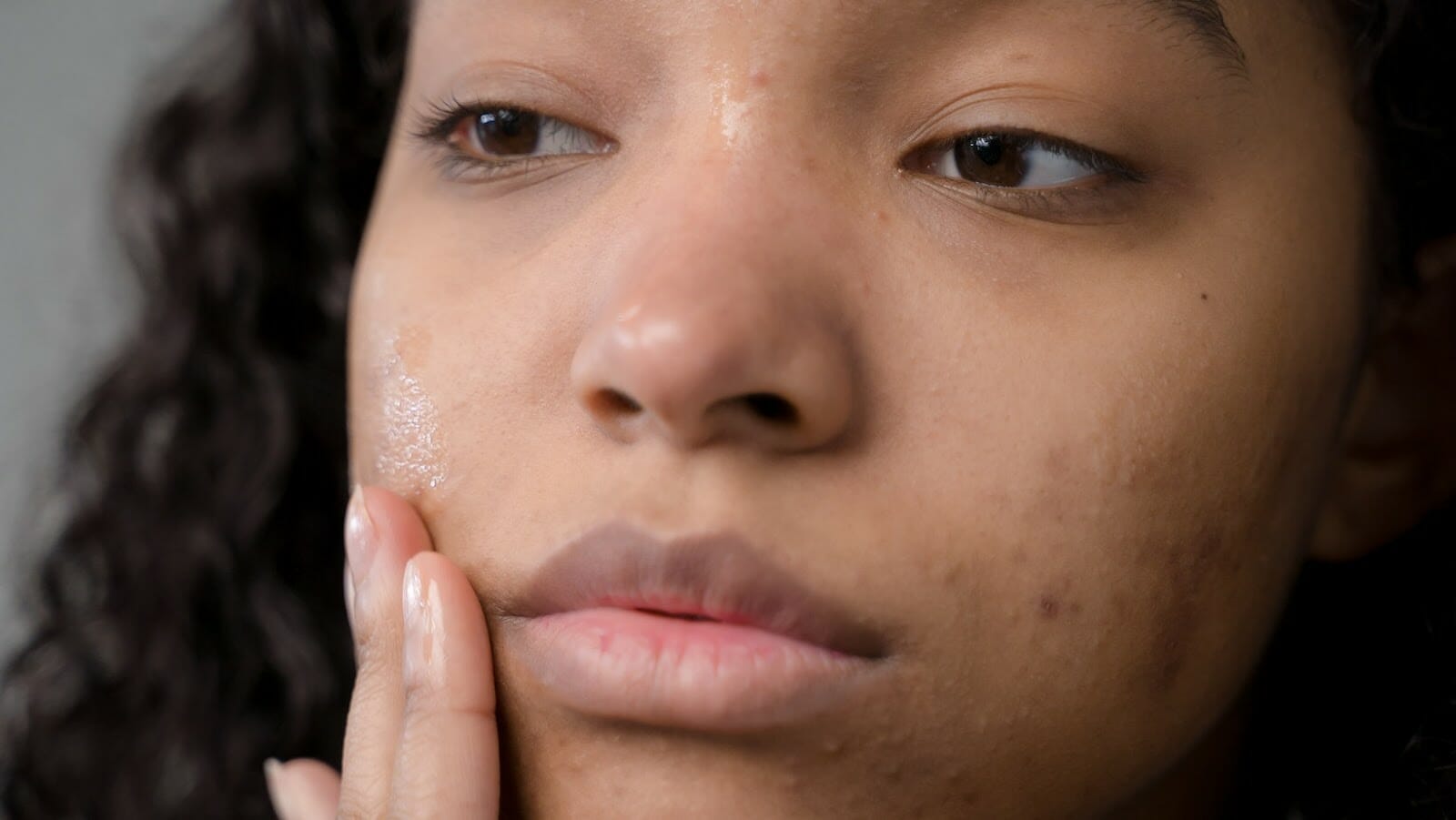
Turmeric and its effectiveness on dark spots
Turmeric is a natural ingredient used for centuries to treat various skin conditions, including dark spots. Its effectiveness comes from its powerful antioxidant and anti-inflammatory properties.
Here are some ways to use turmeric to reduce dark spots:
1. Turmeric and Lemon Juice: Mix turmeric powder and fresh lemon juice to paste. Apply the paste on the affected areas and let it dry for 15-20 minutes. Rinse off with water. Repeat twice a week.
2. Turmeric and Honey: Mix turmeric powder and raw honey to form a paste. Apply the paste on the affected areas and leave it on for 15-20 minutes. Rinse off with water. Repeat twice a week.
3. Turmeric and Milk: Mix turmeric powder and milk to paste. Apply the paste on the affected areas and let it dry for 20-30 minutes. Rinse off with water. Repeat twice a week.
These remedies are natural, safe, and effectively reduce dark spots over time.
Preparing and applying turmeric
Turmeric is a natural remedy for removing dark spots, used for centuries in traditional medicine. To prepare and apply turmeric to your skin, follow these steps:
- Mix one teaspoon of turmeric powder with enough water or milk to paste.
- Cleanse your face and pat dry.
- Using clean fingers or a brush, apply the turmeric paste to the areas with dark spots, avoiding the eye area.
- Leave the paste on for 10-20 minutes or until it dries.
- Rinse your face with lukewarm water, using gentle circular motions to exfoliate the skin.
- Pat your face dry with a clean towel and apply your favorite moisturizer.
Repeat this process 2-3 times per week until you see results. Turmeric can stain clothing and skin, so handle it carefully.
Safety precautions when using turmeric
Turmeric is a common and effective natural remedy to remove dark spots on the skin, however, it is important to take certain safety precautions when using it as a treatment.
Here are the safety precautions to follow:
Conduct a patch test: Turmeric can cause some people skin irritation or an allergic reaction. Therefore, a patch test on a small skin area is essential before applying it to your face or body.
Avoid sun exposure: Turmeric can make your skin more sensitive to the sun, increasing your risk of sunburn and further darkening of the spots. Avoid sun exposure while using turmeric and wear protective clothing, hats, and sunscreen.
Use high-quality turmeric: Ensure you use reputable brands of turmeric powder or fresh turmeric root to avoid skin damage from low-quality or adulterated turmeric products.
Clean your skin: Before applying turmeric to your skin, ensure it is clean and free of dirt, oils, and makeup.
Turmeric is a safe and natural remedy for dark spots, but it requires a few precautions to avoid any potential side effects or skin damage.
Other At-Home Treatments For Dark Spots
While lemon juice is an effective remedy for lightening dark spots, there are many other home remedies for dark spots as well. Natural ingredients like apples, honey, aloe vera gel, baking soda, and yogurt have all been proven to help reduce or eliminate the appearance of dark spots on the skin.
Let’s take a look at some of the other ways to help treat dark spots at home.
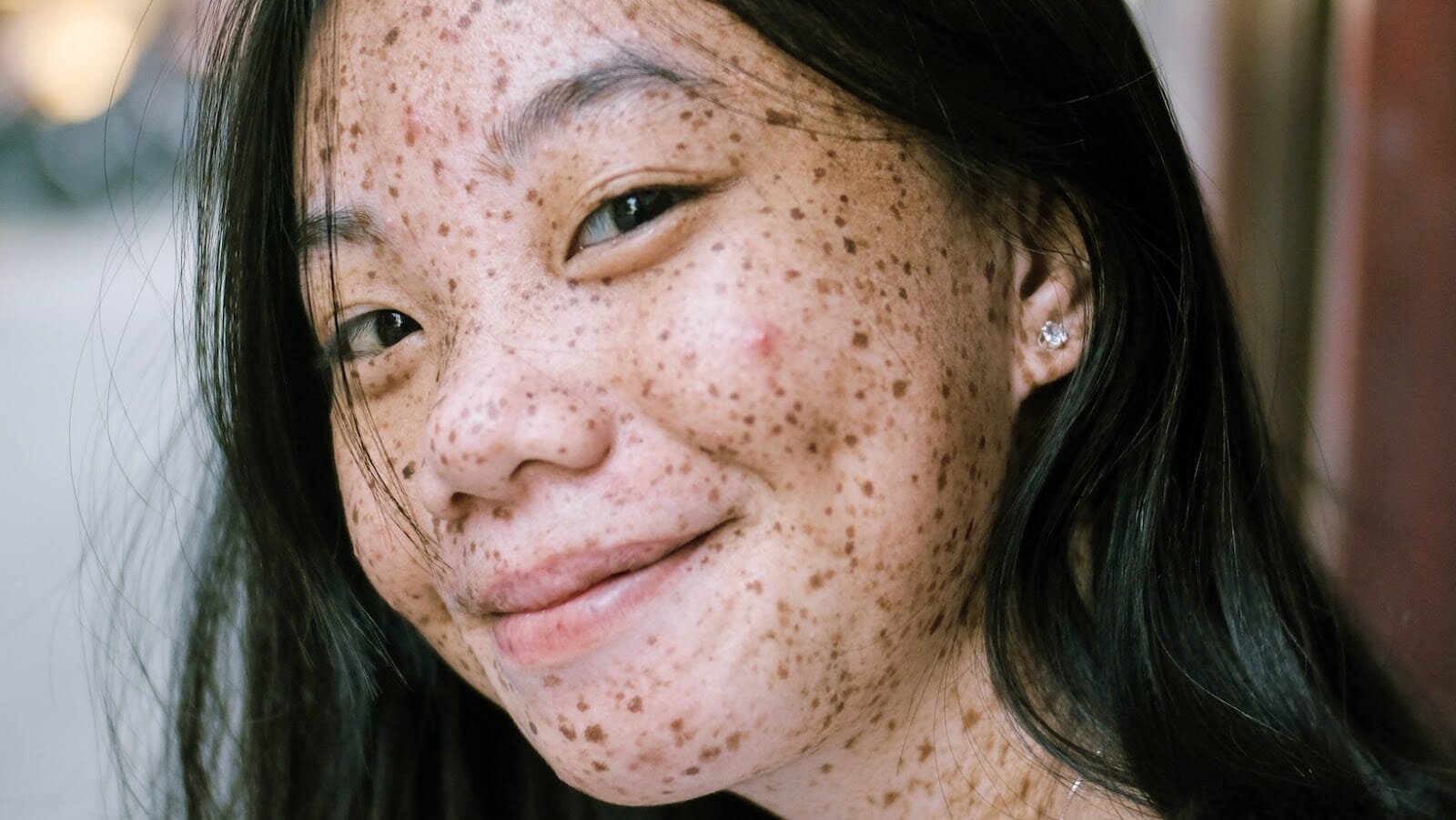
Creating a DIY dark spot cream or mask
Dark spots on the skin can be challenging to remove, but there are many at-home remedies that you can try, including making your own DIY dark spot cream or mask.
Here’s a simple recipe for a DIY dark spot cream:
1. Mix equal parts of honey and lemon juice in a bowl.
2. Apply the mixture to your dark spots using a cotton swab.
3. Leave the mixture on your skin for 20 minutes.
4. Rinse off the mixture with warm water and pat your skin dry.
Other at-home treatments for dark spots include:
– Applying aloe vera gel to the affected area
– Using a milk and honey mask
– Creating a turmeric and yogurt mask
These remedies are effective and natural ways to lighten dark spots and improve the appearance of your skin. Pro Tip: Regularly exfoliate your skin to help remove dead skin cells and promote cell turnover for brighter, healthier-looking skin.
Ingredients and instructions
Dark spots on the skin can be frustrating to deal with, but there are several at-home treatments using natural ingredients that may help reduce their appearance. Here are some ingredients and instructions to try:
Lemon juice: Apply fresh lemon juice to the affected area with a cotton ball and leave on for 10-15 minutes before rinsing off with warm water. Repeat twice a day.
Aloe vera: Apply fresh aloe vera gel to the affected area and leave on for 20-30 minutes before rinsing off with warm water. Repeat twice a week.
Turmeric:
- Mix 1 teaspoon of turmeric powder with 2 teaspoons of milk to paste.
- Apply the paste to the affected area and leave on for 15 minutes before rinsing off with warm water.
- Repeat once a week.
Apple cider vinegar: Mix 1 part apple cider vinegar with 1 part water and apply to the affected area with a cotton ball. Leave on for 5 minutes before rinsing off with warm water. Repeat once a week.
Remember to do a patch test before trying any new treatment and be patient, as it may take several weeks to see results.
Safety precautions when using a DIY cream or mask
Using DIY creams or masks to treat dark spots is a great way to save money and have control over what goes into your skincare products. However, it is essential to follow some safety precautions to avoid any adverse effects.
Here are the top safety precautions to keep in mind when using at-home treatments for dark spots:
1. Always patch test: Before applying any new cream or mask to your face, apply a small amount to your inner forearm or neck and wait 24 hours to see any adverse reaction.
2. Use fresh ingredients: Using stale or expired ingredients in your DIY products can cause skin irritation or infection. Always use fresh ingredients and buy replacements as needed.
3. Follow recipes carefully: Erring from the recipe can lead to an ineffective or unsafe product. Follow the instructions carefully and don’t take shortcuts.
4. Sun protection: All dark spot treatments make your skin more sensitive to the sun, so apply sunscreen before leaving the house.
By following these precautions, you can enjoy the benefits of DIY skincare without any risks.

Natural treatments to prevent future dark spots
Dark spots can be caused by various factors such as sun damage, aging, acne, and genetics. While there are many commercial products available for treating them, there are also several natural remedies that can be used in the comfort of your own home.
Here are some effective natural treatments to prevent future dark spots:
1. Use sunscreen – Apply sunscreen with an SPF of at least 30 daily to protect your skin from the sun’s harmful UV rays.
2. Lemon juice – Apply fresh lemon juice to your dark spots and leave it on for 10-15 minutes before rinsing with warm water. Lemon juice contains vitamin C, which can help lighten dark spots over time.
3. Aloe vera – Apply fresh aloe vera gel to your dark spots and leave it on for 20-30 minutes before rinsing with warm water. Aloe vera has natural skin-lightening properties and can soothe and moisturize your skin.
4. Apple cider vinegar – Mix equal parts of apple cider vinegar and water, apply the mixture to your dark spots with a cotton ball and leave it on for 5-10 minutes before rinsing with warm water. Apple cider vinegar contains acetic acid, which can help exfoliate your skin and reduce the appearance of dark spots.
Using sunscreen to prevent UV damage
Using sunscreen is one of the most effective ways to prevent UV damage and dark spots on your skin. Sunscreen blocks the harmful ultraviolet rays that cause skin damage and hyperpigmentation.
Here are a few other at-home treatments that can help reduce the appearance of dark spots:
Lemon Juice: Lemon juice is a natural bleaching agent that lightens dark spots on the skin. Apply it to the affected area with a cotton ball and rinse off after 15-20 minutes.
Aloe Vera: Aloe vera has anti-inflammatory and skin-lightening properties that can help reduce the appearance of dark spots. Apply the gel directly to the affected area and leave it on for 30 minutes before rinsing it with warm water.
Apple Cider Vinegar: Apple cider vinegar contains alpha hydroxy acids to help exfoliate and lighten dark spots. Mix equal parts of apple cider vinegar and water and apply it to the affected area with a cotton ball. Rinse it off after 5-10 minutes.
These home remedies can be used with sunscreen to prevent and reduce the appearance of dark spots over time.
Incorporating antioxidant-rich foods in your diet
Antioxidants are key to healthy skin and keeping dark spots at bay. Here are some antioxidant-rich foods that can help reduce the appearance of dark spots:
- Berries: Blueberries, strawberries, and blackberries are rich in antioxidants and vitamins A and C, which can help brighten your skin and reduce inflammation.
- Nuts: Almonds, walnuts, and pistachios are loaded with vitamin E, an antioxidant that helps repair damaged skin cells and promote healthy skin.
- Leafy Greens: Spinach, kale, and collard greens are packed with chlorophyll, which helps reduce dark spots and other pigmentation issues.
- Citrus Fruits: Oranges, lemons, and grapefruit are high in vitamin C, an antioxidant that can brighten and firm up your skin while reducing inflammation.
You can also apply at-home treatments like lemon juice, yogurt, and honey to dark spots to help fade them over time.
Staying hydrated to promote healthy skin
Dark spots on the skin can result from numerous factors like hormone changes, sun exposure, aging, etc. While numerous remedies are available to treat dark spots, staying hydrated can be a simple and effective remedy to get glowing skin.
When our body is well hydrated, it helps flush out toxins from the body, which not only helps prevent dark spots but also promotes healthy skin. In addition, drinking enough water throughout the day can keep your skin supple, elastic, and naturally radiant.
Apart from hydration, several other home remedies can help reduce dark spots like lemon juice, turmeric, aloe vera, potato juice, etc. However, it’s always advisable to consult a dermatologist before trying any new home remedy to prevent unexpected reactions.
Pro tip: Set a reminder on your phone to drink a glass of water every 1-2 hours to keep yourself hydrated and your skin healthy.
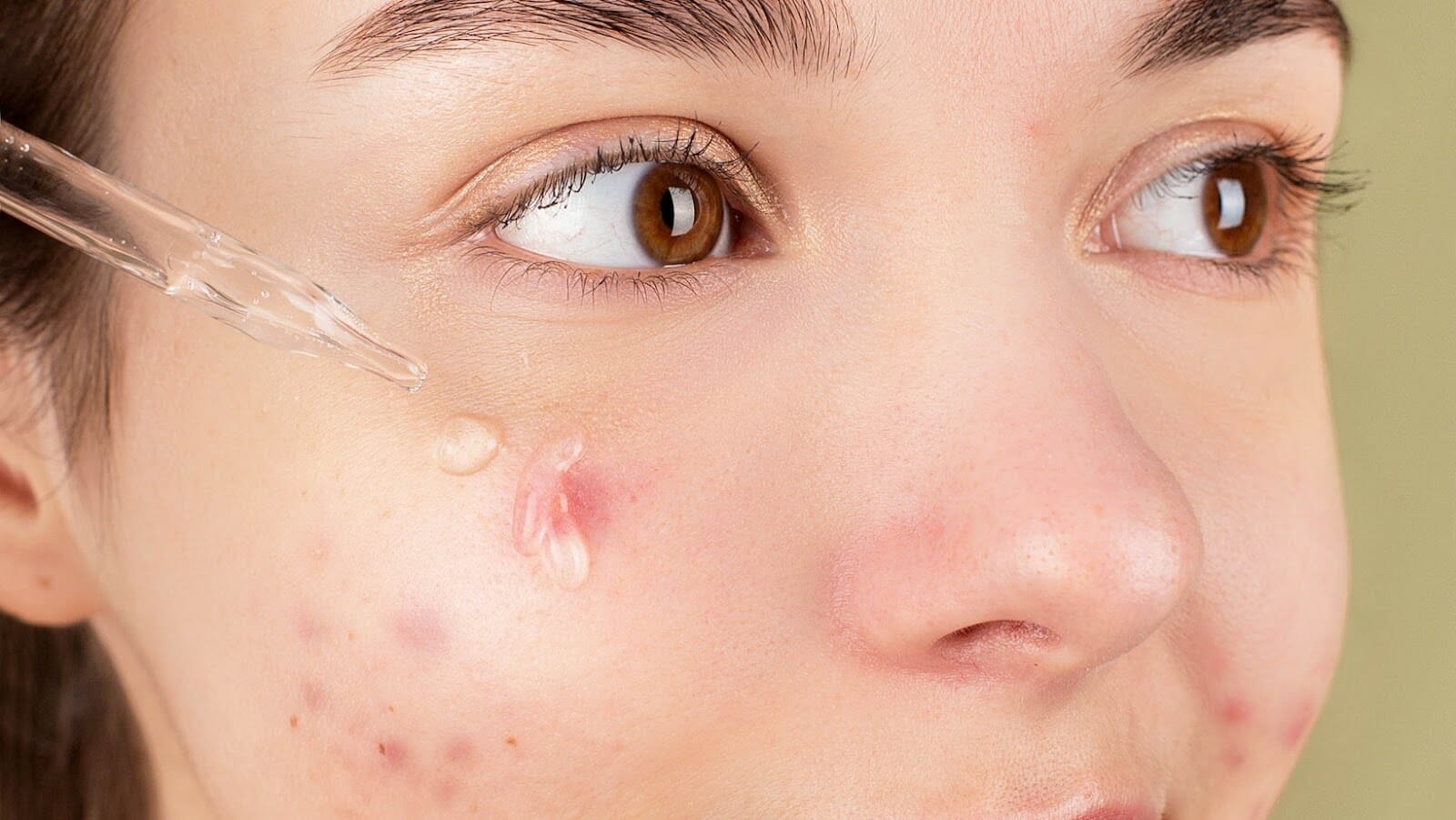
When To See A Dermatologist For Dark Spots
Dark spots can be difficult to eliminate, even with home remedies. If you want to reduce the appearance of dark spots, consulting with a dermatologist may be worthwhile to determine the best course of action for you.
This article will discuss when to see a dermatologist for dark spots and a few home remedies that can help.
Indications for seeking professional help
Dark spots are a common dermatological condition that affects people of all ages and skin types. While many home remedies are available to treat dark spots, it is important to know when to seek professional help from a dermatologist.
Here are some indications for seeking professional help:
- Increasing size, shape or color dark spots require attention as it can be the sign of developing melanoma, an aggressive form of skin cancer.
- Dark spots that do not respond to home remedies, such as lemon juice or aloe vera, are best evaluated by an expert.
- Dark spots that begin to itch, burn or bleed may require immediate medical attention.
- Consulting a dermatologist is a smart choice if your dark spots are causing you emotional distress or negatively impacting your self-esteem.
In conclusion, if you notice any changes in your dark spots, particularly in color or size, it is better to seek a dermatologist’s opinion. In addition, if you have tried various home remedies but haven’t seen results, it’s time to visit a professional.
Types of dark spots that require medical attention
Dark spots on skin are a common occurrence and usually, they are harmless. However, some types of dark spots require medical attention and cannot be treated at home, let’s discuss a few.
- Melasma: This common condition causes brown patches on the skin. It often occurs due to hormonal changes during pregnancy or menopause. It can be treated with prescription creams, chemical peels, or laser therapy and requires a consultation with a dermatologist.
- Skin Cancer: A dark spot that is irregular in shape or has an uneven color may be a sign of skin cancer. It’s important to see a dermatologist if you notice any such spots on your skin as early detection can save lives.
- Age spots: Also known as liver spots, these are flat, gray, brown, or black spots that appear on areas frequently exposed to the sun. They can be treated at home with over-the-counter creams or laser therapy recommended by a dermatologist.
It’s always better to be safe than sorry, if you’re unsure about the type of dark spot, it’s important to see a dermatologist for a proper diagnosis and treatment.
Procedures and treatments offered by dermatologists
Dermatologists offer various procedures and treatments to address skin conditions, including dark spots. Here are some procedures and treatments offered by dermatologists for treating dark spots:
- Chemical Peels: Dermatologists use specialized chemicals to peel off the outermost layer of the skin, reducing the appearance of dark spots and other blemishes.
- Microdermabrasion: This treatment involves using a specialized device to exfoliate the skin, reducing the appearance of dark spots and other blemishes.
- Laser Therapy: Laser therapy uses targeted light beams to break up dark spots and other pigmentation issues.
- Topical Treatments: Dermatologists can recommend and prescribe various topical treatments, such as retinoids, hydroquinone, and kojic acid, to reduce the appearance of dark spots.
Home remedies like lemon juice, aloe vera, and vitamin C can also help reduce the appearance of dark spots. However, if these remedies do not work or you have severe dark spots, you must consult a dermatologist for proper treatment.
Conclusion
In conclusion, several effective and natural home remedies for dark spots can help improve the appearance of your skin. These remedies include apple cider vinegar, Aloe vera, lemon juice, and green tea. These remedies reduce inflammation, regulate melanin production, and promote cell regeneration.
It’s important to remember that natural remedies may take longer to see results and may not be as effective as medical treatments for severe cases of dark spots. Additionally, it’s essential to consult with a dermatologist before trying any new treatment, especially if you have sensitive skin or allergies.
To summarize, incorporating these natural remedies into your daily skincare routine can help brighten and even out the complexion. However, being patient and consistent is crucial, maintaining a healthy diet, and staying hydrated for the best results.
Pro Tip: Always do a patch test before applying any new remedy to your face, ensuring you don’t have an allergic reaction.


